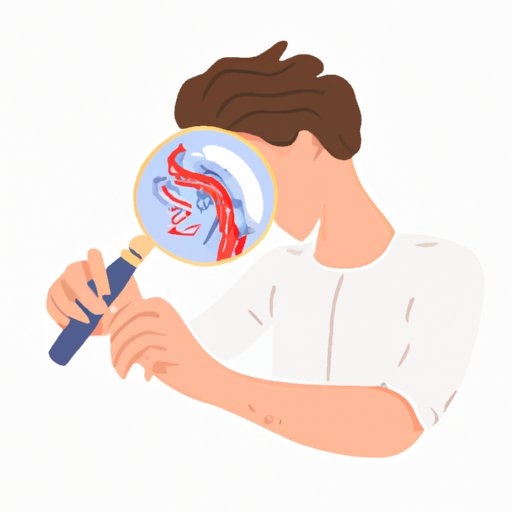
Introduction
Pinworms, also known as threadworms, are intestinal parasites that affect millions of people worldwide, especially children. They are tiny, white worms that can cause discomfort and itchiness around the anus and interfere with sleep. Pinworm infections are highly contagious, so it’s important to identify and treat them promptly to prevent the spread of infection to others.
Symptoms of Pinworm Infections
The most common symptom of a pinworm infection is itching around the anus, especially at night. Other symptoms may include restless sleep, abdominal pain, nausea, and diarrhea. In severe cases, an infected person may experience insomnia or loss of appetite.
Diagnosing a Pinworm Infection
Pinworm infections can be diagnosed through several methods. One way is to use a flashlight in a dark room and check for pinworms around the anus. Another way is to perform a scotch tape test, where a piece of clear tape is pressed against the anus, and then examined under a microscope for pinworm eggs.
Treating a Pinworm Infection
Pinworm infections can be treated with medications prescribed by a doctor, such as mebendazole or albendazole. However, medication only kills the worms and doesn’t prevent re-infection. Proper hygiene practices are important in preventing re-infection, including washing hands regularly, showering and changing clothes frequently, and cleaning surfaces and toys thoroughly.
Home Remedies to Alleviate Symptoms
In addition to medications and proper hygiene practices, there are several home remedies that can help alleviate the symptoms of a pinworm infection. Applying a cold compress to the anus can help reduce itching and inflammation. Baking soda baths can also help relieve itching and soothe irritated skin.
Causes of Pinworm Infections
A pinworm infection is caused by ingesting pinworm eggs, which can be found on contaminated surfaces or food. Poor hygiene practices, such as not washing hands after using the toilet or changing diapers, can contribute to the spread of infection.
Prevention Tips
Preventing a pinworm infection involves practicing good hygiene, such as washing hands regularly, washing bedding often, and cleaning surfaces and toys. It’s also important to avoid touching surfaces that may be contaminated with pinworm eggs, such as doorknobs or bathroom fixtures.
Risks and Complications of Untreated Pinworm Infections
If left untreated, a pinworm infection can lead to complications such as bacterial skin infections, the development of abscesses, and severe complications in individuals with weakened immune systems.
Conclusion
Pinworm infections are common but easily treatable. Proper hygiene practices and treatment with medications can help prevent and treat pinworm infections. If you suspect that you or a family member has a pinworm infection, it’s important to seek medical attention and follow proper hygiene practices to prevent the spread of infection to others.




